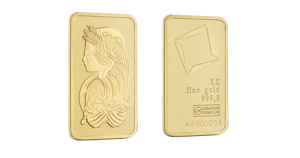Tavex uses cookies to ensure website functionality and improve your user experience. Collecting data from cookies helps us provide the best experience for you, keeps your account secure and allows us to personalise advert content. You can find out more in our cookie policy.
Please select what cookies you allow us to use
Cookies are small files of letters and digits downloaded and saved on your computer or another device (for instance, a mobile phone, a tablet) and saved in your browser while you visit a website. They can be used to track the pages you visit on the website, save the information you enter or remember your preferences such as language settings as long as you’re browsing the website.
| Cookie name | Cookie description | Cookie duration |
|---|---|---|
| tavex_cookie_consent | Stores cookie consent options selected | 60 weeks |
| tavex_customer | Tavex customer ID | 30 days |
| wp-wpml_current_language | Stores selected language | 1 day |
| AWSALB | AWS ALB sticky session cookie | 6 days |
| AWSALBCORS | AWS ALB sticky session cookie | 6 days |
| NO_CACHE | Used to disable page caching | 1 day |
| PHPSESSID | Identifier for PHP session | Session |
| latest_news | Helps to keep notifications relevant by storing the latest news shown | 29 days |
| latest_news_flash | Helps to keep notifications relevant by storing the latest news shown | 29 days |
| tavex_recently_viewed_products | List of recently viewed products | 1 day |
| tavex_compare_amount | Number of items in product comparison view | 1 day |
| Cookie name | Cookie description | Cookie duration |
|---|---|---|
| chart-widget-tab-*-*-* | Remembers last chart options (i.e currency, time period, etc) | 29 days |
| archive_layout | Stores selected product layout on category pages | 1 day |
| Cookie name | Cookie description | Cookie duration |
|---|---|---|
| cartstack.com-* | Used for tracking abandoned shopping carts | 1 year |
| _omappvp | Used by OptinMonster for determining new vs. returning visitors. Expires in 11 years | 11 years |
| _omappvs | Used by OptinMonster for determining when a new visitor becomes a returning visitor | Session |
| om* | Used by OptinMonster to track interactions with campaigns | Persistent |
| Cookie name | Cookie description | Cookie duration |
|---|---|---|
| _ga | Used to distinguish users | 2 years |
| _gid | Used to distinguish users | 24 hours |
| _ga_* | Used to persist session state | 2 years |
| _gac_* | Contains campaign related information | 90 days |
| _gat_gtag_* | Used to throttle request rate | 1 minute |
| _fbc | Facebook advertisement cookie | 2 years |
| _fbp | Facebook cookie for distinguishing unique users | 2 years |
Understanding Gold Spot Price Calculations

Gold has been a symbol of wealth and a safe haven investment for centuries. Its allure lies not only in its intrinsic value but also in its ability to hold its worth during economic uncertainties. However, one aspect that can perplex investors and enthusiasts alike is the daily fluctuation in the gold spot price.
In this article, we will delve into what is the gold spot price, a brief history of spot prices, how it is calculated each day, the reasons behind these spot price fluctuations, and how they impact the precious metal market.
What is the Gold Spot Price?
Before delving into fluctuations, let’s understand what the gold spot price actually is. The gold spot price is the current market price for one troy ounce of 24-karat gold. It serves as the benchmark for gold pricing worldwide and is influenced by a variety of factors, both economic and geopolitical. To learn more about why SPOT prices fluctuate read our other article on ‘How SPOT Prices are Determined’.
A Historical Perspective

The history of gold spot prices is rich and fascinating. Gold has been a valuable commodity for thousands of years, and its pricing mechanisms have evolved over time. In ancient civilisations, gold was traded primarily through barter, with its value determined by weight.
The first standardised gold coins, like the Lydian stater from around 600 BCE, marked a significant step toward a more organised system of pricing.
It wasn’t until the 19th century that modern gold spot prices began to take shape
The official gold standard, where currencies were backed by gold at a fixed rate, was established in the 19th century and prevailed until the early 20th century. During this period, gold prices were relatively stable as they were tied to fixed exchange rates. However, the gold standard was abandoned by many countries in the 20th century, leading to greater price fluctuations as gold moved toward a free-floating system.
Today, the gold spot price is influenced by a complex web of factors, as mentioned earlier, and is continuously updated to reflect the dynamics of the global economy and financial markets.
When is the Gold Price Calculated Each Day?

The gold spot price is not a fixed value but is determined multiple times each trading day in the financial market
The primary gold trading centres, including London, New York, and Shanghai, set the gold spot price through a process known as “fixing” or “setting” the price. This occurs twice a day in London, where representatives from major banks gather to establish the London Gold Fixing or London Bullion Market Association (LBMA) Gold Price.
The LBMA Gold Price is calculated through a transparent auction process. Market participants, including banks, dealers, and refiners, submit buy and sell orders electronically, attempting to find a balance that matches the highest buying orders with the lowest selling orders. The auction process is repeated in the morning and afternoon (London time), providing two daily reference points for the gold spot price.
Factors Driving Gold Price Fluctuations

1. Supply and Demand
One of the primary factors affecting gold price fluctuations is the interplay between supply and demand. When demand for gold rises, prices tend to go up, and when demand decreases, prices can fall. Factors like jewellery production, industrial use, and central bank purchases can all influence demand. Conversely, gold mining production levels and scrap supply contribute to the overall supply.
2. Economic Indicators
Economic indicators, such as inflation rates, interest rates, and the strength of the U.S. dollar, play a significant role in gold price movements
For example, when inflation is on the rise, investors often turn to gold as a hedge against the eroding purchasing power of their currency. Similarly, lower interest rates can make gold more appealing as it becomes less costly to hold compared to interest-bearing assets.
3. Geopolitical Events
Geopolitical events, such as wars, political instability, and trade disputes, can have a profound impact on gold prices. These events often create uncertainty in financial markets, leading investors to seek the safety of gold, causing its price to rise.
4. Speculation and Market Sentiment
Investor sentiment and speculative trading can lead to short-term fluctuations in gold prices. Traders often react to news and market events, resulting in rapid price swings. These fluctuations can be amplified by algorithmic trading and high-frequency trading strategies.
The Role of Central Banks

Central banks, particularly the U.S. Federal Reserve, play a pivotal role in influencing gold prices.
Decisions regarding interest rates and monetary policies can impact the value of the U.S. dollar, which, in turn, affects gold prices
For instance, when the Federal Reserve adopts a dovish stance and lowers interest rates, the U.S. dollar weakens, making gold more attractive to investors and potentially causing its price to rise.
Key Takeaways
Gold spot price fluctuations are a natural outcome of the complex interplay of supply and demand, economic indicators, geopolitical events, and market sentiment. Investors and enthusiasts should be aware of these factors and closely monitor gold prices to make informed decisions about buying, selling, or holding this precious metal.
Understanding the dynamics behind gold price fluctuations is essential for anyone looking to navigate the ever-changing world of precious metal investments.


















